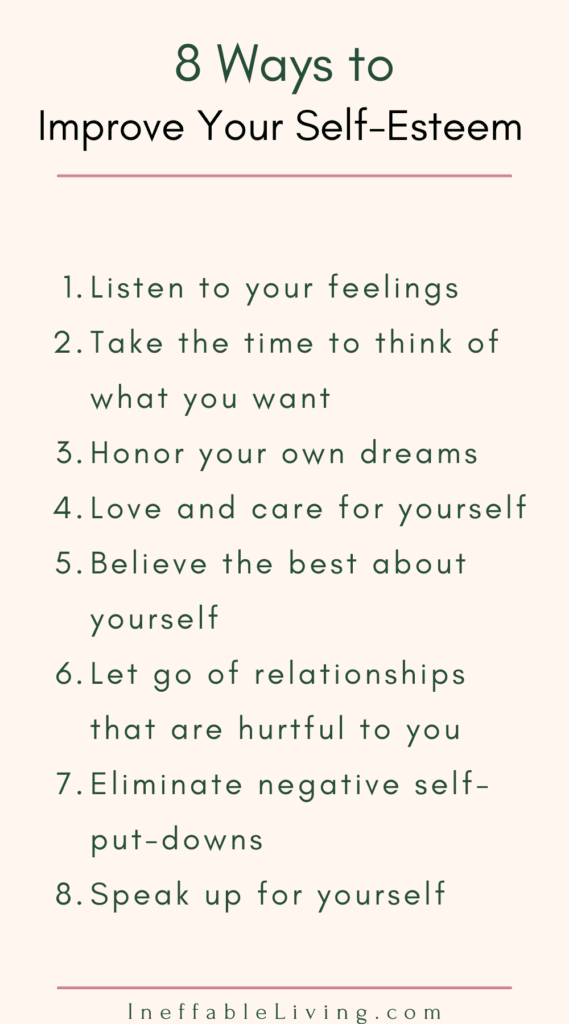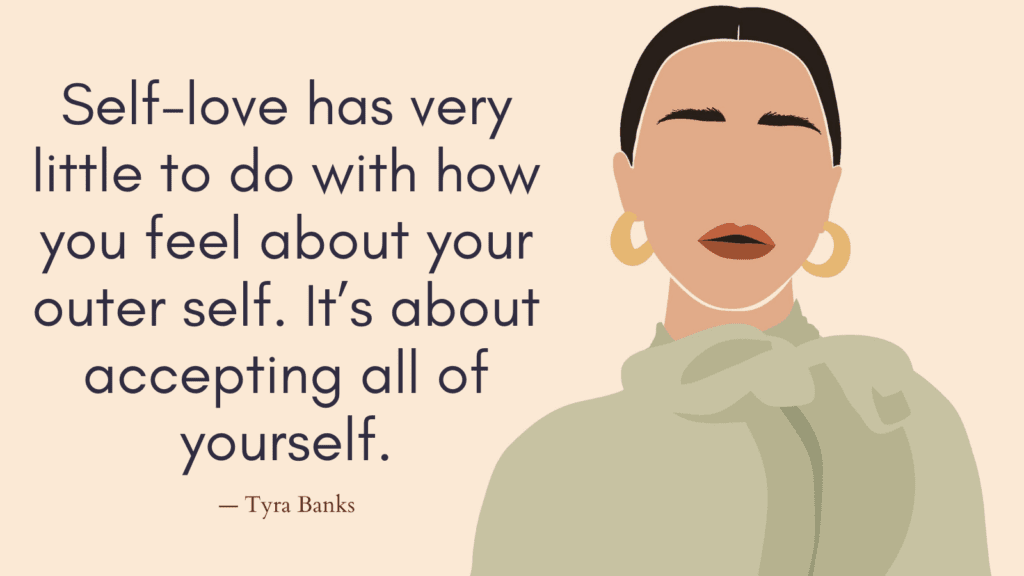Today you’ll learn how to stop envying others.
Jealousy is wanting what others have.
Resentment goes farther than that, it’s wanting what others have and wishing they won’t have it anymore.
And while occasional jealousy is normal, resentment isn’t and can be damaging for your physical and emotional health.
People who are resentful usually share some of these signs:
- They compare their appearance and wealth to others around them.
- They feel uncomfortable listening to others sharing their success stories.
- They feel like no matter how hard they try, everyone else seems to be more successful.
- They find it hard to be around people who make more money than they do.
- They oftentimes imply to others that they’re doing better than they actually are.
- They might feel joy when a successful person encounters a misfortune.
Why Do We Feel Miserable and Resentful When Others Do Well?
1. A sense of injustice
Resentment can stem from a feeling of injustice, which is oftentimes, unreal.
For instance, people might feel like it’s not fair for other people to make so much money while they’re struggling to make ends meet.
Some people would even blame successful people for making them feel less than successful.
2. Deep-rooted insecurities
Resentment can also be the result of someone’s deep-rooted insecurities.
It’s hard to feel happy for someone’s accomplishments when you feel bad about yourself.
Others’ success seems to only magnify your shortcomings.
3. Not knowing what you want
It’s easy to resent what others have when you don’t know what you want yourself.
For instance, you might look at someone who has a job that requires traveling all the time and think, he’s so lucky, and wish to do that.
At the same time, you might wish for the lifestyle of someone else who operates a home-based business that prevents him from traveling and you think to yourself “I want that”, even though the two lifestyles you’re wishing for are conflicting.
It’s easy to overlook what these people invest of their time, money, and energy to get the result you’re envying them for.
It’s easy to look at a professional model and say “I wish I could do that”.
But do you really? Do you wish your entire income came solely from your appearance which will decline as you age? Do you really wish you could give up eating the food you love so you can stay in shape?
Related: How To Stop Self-Critical Thoughts Using These Top 10 Techniques
The Problem With Resenting Other People’s Success
Resentment can easily interfere with all areas of your life, making it hard for you to enjoy your life.
Below are some problems resentment can cause:
1- You stop focusing on your own path of success
The more time and energy you direct toward resenting someone’s success, the less time and energy you have to devote to your own goals.
Focusing on others’ achievements will slow down your own progress.
2- You’ll never be content with what you have
If you’re always trying to get ahead of everyone else, you’ll never be satisfied with what you have.
There will always be someone out there who has more money, who is more attractive, who is more popular, and so on.
3- You may lose sight of your own values
It’s hard to stay true to your values when you feel resentful.
Resentment can lead people to behave in desperate manners they normally wouldn’t like going into debt to keep up with others, or outright lying about your accomplishments to prove your worth.
4- Unhealthy relationships
It’s hard to maintain a healthy relationship with someone you resent.
Even when hidden under a fake smile, resentment is bound to surface through sarcasm and irritability.

Best 10 Tips On How To Stop Envying Others
#1. Change Your Circumstances
If you’re not feeling good about yourself, then it’s a sign that maybe you need to change something.
Examine the reasons that might make you feel unsatisfied about yourself, and figure out what can be done differently to bring your behavior in line with your values and goals in life.
#2. Change Your Negative Thoughts Fueling Your Jealousy
If you’re already behaving in a manner that is in line with your values and goals in life, and yet you still feel resentful toward other people’s success, then you need to consider shifting any irrational thoughts that are interfering with your ability to accept others’ success and feel happy for them.
Try these strategies to change your thoughts:
1- Don’t compare yourself to others.
Everyone has his own unique set of skills and life experiences, and comparing yourself to others is never the accurate meter to measure your self-worth.
Instead, compare yourself now to who you used to be in the past and measure how you’re growing as a person.
2- Stop focusing on your weaknesses.
When you focus on the things you don’t have or can’t do, you start resenting others who have these things.
Instead, focus on your abilities and strengths.
3- Stop magnifying others’ strengths.
It’s easy for us to overlook others’ weaknesses and insecurities and magnify their strengths.
However, no matter how great they seem to be doing, they too have weaknesses and problems you wouldn’t envy them for.
4- Be aware of your stereotypes.
You never know what goes on behind closed doors.
Get to know people before deciding how perfect their life is or whether or not they deserve their success.
5- Don’t belittle others’ accomplishments.
When someone is successful, you feel tempted to insult their accomplishments simply to feel better about your shortcomings.
Don’t fall into that trap. Instead, feel happy for them whether you think they deserved it or not.
6- Stop trying to determine what’s fair.
Sometimes people cheat to get ahead and sometimes people become famous by chance, but oftentimes, people work hard to earn their success.
It’s not your job to judge what’s fair and what’s not.
Instead, devote your time and energy to reach your goals and lead a life that is in line with your values.
Related: How to Get Past Self-Pity For Good? (6 Ways to Stop Feeling Sorry For Yourself )
#3. Focus On Cooperation Rather Than Competition
Couples who keep scores are viewing each other as competitors.
They’re focused on trying to win rather than having a healthy relationship. Instead of building something together and living as a team, they’re beating each other up.
Whether it was a spouse, a friend, a co-worker, a neighbor… stop viewing them as competitors and see what you can learn from their success.
Being surrounded by successful people shouldn’t be a reason to feel less successful.
Quite the opposite, it’s an opportunity for you to learn and grow as a person.
Eventually, you’ll find yourself becoming more successful as you start learning how successful people think.
Related: Best 18 Self Compassion Journal Prompts (+FREE Worksheets)
#4. Create Your Own Definition Of Success
Money is one of the most common definitions people have for success. But there is more to success.
Maybe you feel good about yourself when you’re surrounded by healthy, nurturing relationships. Maybe your definition of success in life is in being able to give back to the community through your skills and knowledge.
If money isn’t your definition for success, it should be easier for you to resist resenting someone who’s able to earn a lot of money.
Don’t just live according to someone else’s definition of success. Find your own definition of success and live according to it.
To find your own definition ask yourself the following question “What are my biggest accomplishments in life?”
Do you consider making money your biggest accomplishment in your life? Is it the family you built? Or is it the difference you made?
When you’re tempted to resent someone else’s accomplishment, remember your own definition of success and remind yourself that everyone’s path to success is different and that your own journey is unique and can’t be compared to someone else’s.
Find Your “Ikigai”
“Ikigai” (ee-key-guy) is a Japanese concept, which combines the terms iki, meaning “alive” or “life,” and gai, meaning “benefit” or “worth.”
Combined, these terms mean that which gives your life worth, meaning, or purpose, or the reason we get up in the morning. It’s what a French philosopher might call a raison d’être.
#5. Live In Line With Your Values
We are happier and more fulfilled when our lives are more in alignment with our deepest values.
In a world of abundance with limitless possibilities, making the right choice has never been harder.
This is where values come in.
How do you know if you’re making the right choice?
When we feel conflicted about a particular decision, our bodies can guide us. A tightness in the chest or a squeamish sensation in the gut may signal harm—even when logic suggests otherwise.
On the other hand, a feeling of calm about a certain decision may indicate a very different message.
Prompts to Help You Define Your Values
- What type of romantic partner do you want to be?
- What type of parent do you want to be?
- What type of son or daughter do you want to be?
- What type of friend do you want to be?
- What do you value in friendship?
- What type of boss or employee do you want to be?
- What areas do you like to learn more about or skills you’d like to develop?
- What do you value about your work? Do you value productivity, integrity, or other aspects of your job?
- What contribution would you like to make to the larger community?
- What does spirituality mean to you?
- What values do you have related to your physical health and emotional well-being?
- What does self-care mean to you?
#6. Increase Your Self-Respect
Cultivating self-respect will improve your self-esteem and positively impact the way you think about yourself.
Try the following to cultivate a sense of self-respect:
- Treat yourself with compassion as you would treat a loved one. Allow yourself to feel your emotions and have needs without judgment.
- Set healthy emotional boundaries. Identify your values and needs and if someone tries to get you to go against your values, let them know you will not.
- Avoid manipulating others into getting your needs met, be it through caretaking, lying, begging, etc. you’ll respect yourself more if you avoid these behaviors.
Related: Raising low self-esteem: 18 Ways to Build High Self-Esteem

#7. Increase Your Positive Experiences
Increasing your positive experiences will help you feel good about yourself and your life and brighten your mood, in general.
Write down a list of activities that make or you think may make you happy.
Begin by scheduling, at least one activity a day.
Here are some examples of positive activities:
- Have a cup of tea at your favorite café before work.
- Go outside and have your lunch in the sun.
- Go for a walk.
- Spend time with a loved one.
- Curl up with a good book.
- Light a scented candle and meditate.
- Have a delicious dessert.
- Play with a pet.
#8. Develop Mastery Skill
It can be hard at times to feel good about ourselves or confident that we are capable of accomplishing great things.
By planning and keeping track of your accomplishments, you can counteract the negative thoughts about yourself.
Pick something to do that’s somewhat challenging for you right now.
This will depend on how much energy and practice you have. For one person it might be running a marathon. For another, it could just be getting the closet organized.
Once you complete the task, notice how you feel. Allow yourself to grow with increasingly challenging tasks over time.
#9. Practice Celebrating Others’ Accomplishments
Once you figure out your own definition of success, and after addressing your own insecurities, start feeling happy for others’ success. Congratulate them and wish them more success.
It’s hard to resist feeling resentful when you’re struggling in life while those around you are doing well.
It takes hard work and persistence to be able to focus on your goals and feel happy for others’ accomplishments.
#10. Self-Care
Taking care of yourself may feel unfamiliar. You may not know where to begin.
Self-care is important to reduce emotional vulnerability and become more resilient.
Balance your diet: Stress may push you to over or under-eat. Be aware of that and make sure you eat regularly and healthfully.
Avoid food that will trigger your anxiety, such as:
- Coffee, tea and energy drinks.
- Sugary drinks.
- Alcohol.
- Cakes, cookies, and pies.
- Processed meats, cheese and ready-made meals.
- Fruit and vegetable smoothies with high glycemic indexes.
- Gluten.
- Artificial sweeteners.
- Processed vegetable oils. (*)
Get quality sleep: do your best to go to bed early and get enough sleep. Implement a relaxing bedtime routine, like journaling, listening to soothing music, drinking chamomile tea, dimming the lights, taking a bath, reading fiction, etc.
Exercise: exercise, especially moderate one, like a 30-minute walk, water aerobics, biking, basketball, swimming, etc. helps release stress chemicals, such as adrenaline and cortisol.
It also stimulates the production of endorphins, which are the body’s natural painkillers and mood elevators.
Start small and build up to 20 minutes, 3 times a week.
Related: 45 Easy Self Care Day Ideas at Home for a Healthy Mind, Body & Soul
Resources
Portions of this article were adapted from the book 13 Things Mentally Strong People Don’t Do, © 2013 by Amy Morin. All rights reserved.
- Frontiers | The Role of Subjective and Objective Social Status in the Generation of Envy | Psychology (frontiersin.org)
- Frontiers | The Evolutionary Psychology of Envy and Jealousy | Psychology (frontiersin.org)
- The Anatomy of Envy: A Study in Symbolic Behavior [and Comments and Reply] on JSTOR
- Is envy harmful to a society’s psychological health and wellbeing? A longitudinal study of 18,000 adults – ScienceDirect



